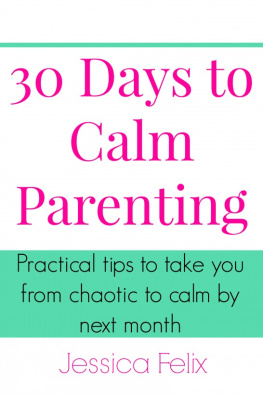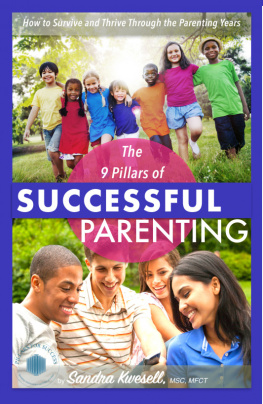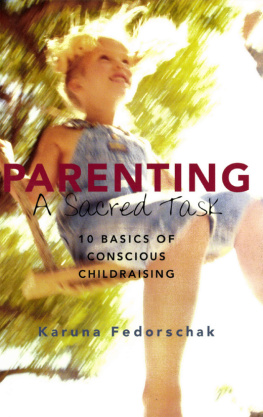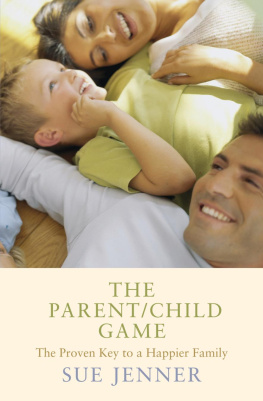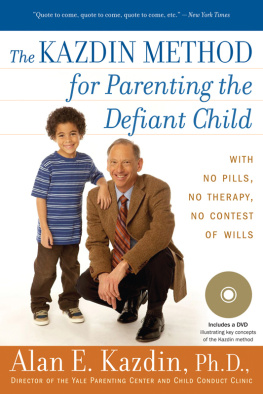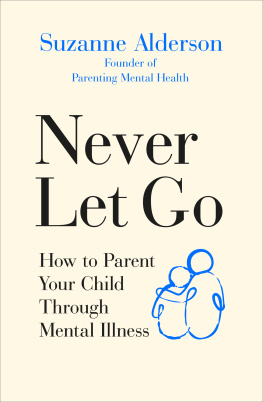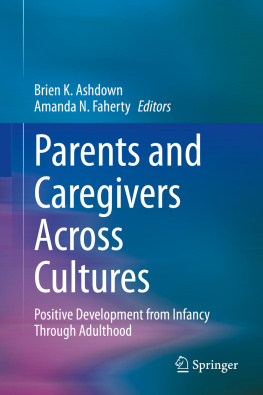THE
ENCYCLOPEDIA OF
PARENTING THEORY
AND RESEARCH
THE
ENCYCLOPEDIA
OF PARENTING THEORY
AND RESEARCH
____________________
EDITED BY
CHARLES A. SMITH
Copyright 1999 by Charles A. Smith
All rights reserved, including the right of reproduction in whole or in part in any form.
For information, write to:
FITZROY DEARBORN PUBLISHERS
310 Regent Street
London W1R 5AJ
England
or
FITZROY DEARBORN PUBLISHERS
191 North Michigan Avenue
Chigaco, Illinois 60611
U.S.A.
Library of Congress and British Library CIP is available.
ISBN 1-57958-159-5
First published in the U.K. and U.S.A., 1999
Printed in the United States of America
To Sarah and Bill for teaching me the Important Things about being a parent
Contents
Preface
The word parent is most often used as a referent to a biological relationship with a child. We say, for example, She is the child's parent. This meaning emphasizes a past, static event. The word parent, along with father and mother, can also mean an act of caring, nurturing, and protecting. This meaning is more dynamic and is based on a relationship that is not necessarily biological. When we say, That child needs a father, we imply that the child needs a relationship with a man committed to his or her upbringing. The word parenting is clearly action oriented. Parenting means assuming responsibility for the emotional, social, and physical growth and development of a child. Becoming a parent is relatively easy. Parenting, however, is a skill that is learned and improved over one's lifetime.
The Encyclopedia of Parenting Theory and Research offers 244 entries on a variety of issues that illuminate the nature of the relationship between parents and children. Each of the contributors to the Encyclopedia was asked to create an entry of approximately 1,000 words emphasizing only the most important information he or she could find for that entry. Contributors examined the most pertinent research and theory for each term and explored its implications for practitioners and for parents. The Encyclopedia is an information-dense book with entries that are readily accessible because of their brevity. Each entry and its associated references provide an excellent launching point for readers interested in studying an issue in more depth. A thorough index enhances the sophistication of the Encyclopedia by guiding readers interested in even more depth.
The Encyclopedia of Parenting Theory and Research provides a comprehensive summary of what we know about parents and parent-child relationships.
Our target audience for the Encyclopedia consists of: parent educators, teachers, researchers, health scientists, mental health professionals, community educators, librarians, and others interested in parent-child relationships. In addition, parents seeking a more factual, research-based perspective to understanding parenting should find the material reasonably jargon free and approachable.
If you have suggestions for additional terms in a second edition, should one be undertaken, you can contact me by visiting my website, The WonderWise Parent (http://www.ksu.edu/vvwparent/).
ACKNOWLEDGMENTS
I would like to thank John Murray, Director of the School of Family Studies and Human Services at Kansas State University for his support and encouragement throughout the arduous process of bringing this effort to publication. The enthusiasm of many of my colleagues, especially Judy Myers-Walls, Wally Goddard, and Jim Ponzetti, was especially important. The professional talents of the editorial staff at Greenwood Press, including Michelle Pini, Norine Mudrick, and Susan Badger, were much appreciated in bringing this work to publication. I would also like to thank George Butler, Associate Editor at Greenwood, for his support and encouragement. Finally, I owe a debt of gratitude to the creators of the Internet, which made rapid communication possible with authors from around the world.
Charles A. Smith
Introduction
Nine categories cluster the Encyclopedia terms into groups around shared themes. Each term is listed only once, although most terms could fit into more than one category. These categories are conveniences with fluid boundaries and considerable overlap.
Child activity consists of terms that deal with child behavior.
Child outcomes relate to the effective consequences of parent-child relationships.
Child states involve the relationship between parents and selected child characteristics.
Parent behaviors summarize different types of parental action.
A Parent state or context focuses on parental characteristics or social contexts.
External or community factors examine the forces outside of the parent that influence parenting.
System issues examine the context of parenting within the family as a system.
Resources are available to parents or parent educators.
People consists of historically significant professionals who made a great impact on our understanding of parenting and parent education.
Readers may find it profitable to concentrate their study in these families of terms to take advantage of the overlap and connection between them. For a more detailed and focused review, the reader is advised to make liberal use of the book's extensive index.
| Child Activity |
| Adolescent separation | Mathematics | Resiliency in children |
| Affectivity, positive and negative | Misbehavior | Self-esteem |
| Aggression, childhood | Money and children | Separation anxiety |
| Biting | Narratives, personal | Sex roles |
| Bullying | Night wakings | Sexuality, adolescent |
| Chores | Nighttime fears | Shame |
| Competition | Pain and children | Shyness |
| Compliance | Peace education | Sports |
| Crying | Peer influence | Temper tantrums |
| Eating behaviors, children and | Pets and children | Temperament |
| Emotion language | Physical activity | Thumb sucking |
| Fear | Play | Toilet learning |
| Guilt | Prosocial behavior | Whining |
| Jealousy | Puberty |
| Child Outcomes |
| Academic achievement | Identity development | Physical fitness |
| Attachment, secure | Imagination | Playground skills |
| Conscience | Immunization | Popularity |
| Cultural competence | Language development | Racial identity |
| Death, understanding of | Literacy | Religious development |
| Empathy | Moral development | Social competence |
| Empowerment | Motor development | Spirituality |
| Child States |
| Aids/HIV | Disability, physical | Night terrors |
| Aids/HIV, adolescent | Eating disorders | Nightmares |
| Aids/HIV, pediatric |


